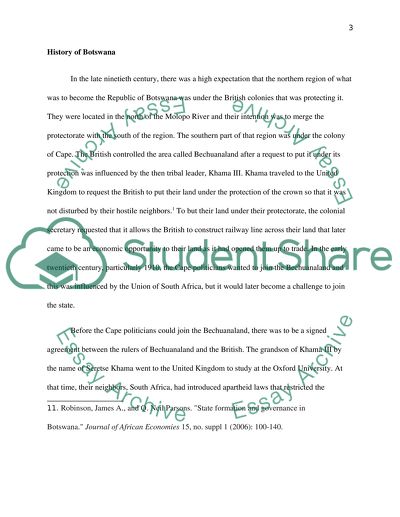Cite this document
(“History of Botswana Essay Example | Topics and Well Written Essays - 1250 words”, n.d.)
Retrieved from https://studentshare.org/history/1702341-history-of-botswan
Retrieved from https://studentshare.org/history/1702341-history-of-botswan
(History of Botswana Essay Example | Topics and Well Written Essays - 1250 Words)
https://studentshare.org/history/1702341-history-of-botswan.
https://studentshare.org/history/1702341-history-of-botswan.
“History of Botswana Essay Example | Topics and Well Written Essays - 1250 Words”, n.d. https://studentshare.org/history/1702341-history-of-botswan.


